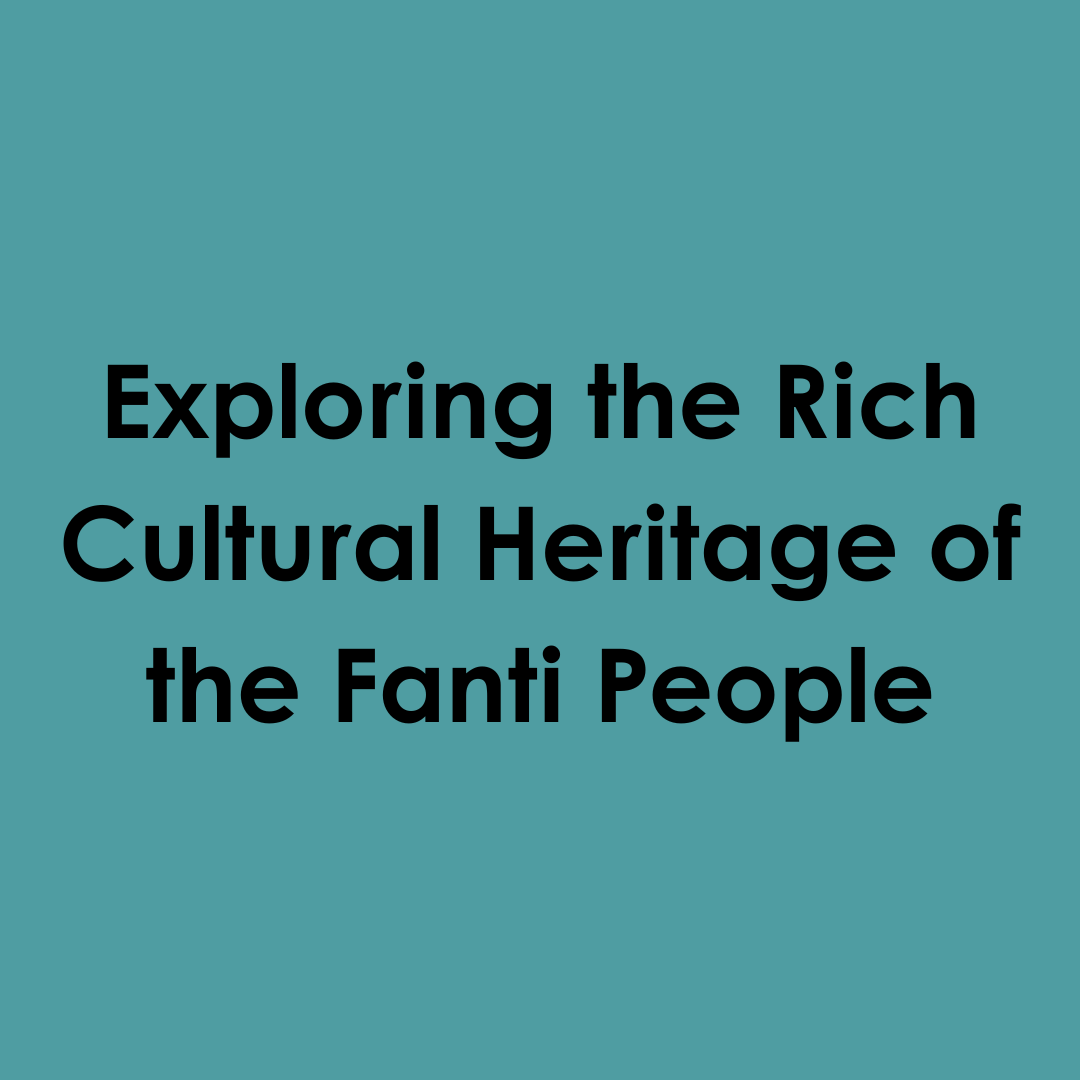The Fanti people, one of the prominent ethnic groups in Ghana, primarily inhabit the coastal regions of the Central and Western regions. Renowned for their vibrant traditions, rich history, and distinct cultural practices, the Fanti culture is a treasure trove of experiences that reflect the resilience and creativity of its people. This article delves into various aspects of Fanti heritage, including their language, customs, traditional ceremonies, cuisine, and contributions to the broader Ghanaian culture.
Language and Identity
The Fanti people predominantly speak Fante, a dialect of the Akan language. Fante serves not only as a means of communication but also as a vital marker of cultural identity. The language is rich in proverbs and idiomatic expressions that convey wisdom and life lessons. Elders often use these proverbs in storytelling, helping to pass down history and cultural values from one generation to the next. The preservation of the Fante language is crucial for maintaining the unique identity of the Fanti people, and efforts are ongoing to promote its use in schools and communities.
Traditional Customs and Practices
Social Structure
The Fanti society is structured around matrilineal lineage, where inheritance and family ties are traced through the female line. This system influences various aspects of daily life, including marriage, property ownership, and leadership. The role of women is significant; they are often the custodians of cultural knowledge and play vital roles in family and community life.
Dress and Adornments
Traditional Fanti attire is characterized by colorful fabrics, notably the kente cloth, which is handwoven and signifies status and cultural heritage. Men typically wear kente or other brightly colored cloth as wraps, while women adorn themselves in beautifully designed blouses and skirts. Accessories such as beads and gold jewelry further enhance their traditional dress, reflecting their cultural pride and aesthetic values.
Festivals and Celebrations
Festivals play a crucial role in Fanti culture, serving as opportunities for communal gathering, celebration, and the reinforcement of cultural identity. One of the most significant festivals is the Fanti Fofie Festival, celebrated annually. This festival is a time for the Fanti people to give thanks to their ancestors and the gods for the harvest, as well as to reflect on their history and culture.
During the festival, there are vibrant displays of traditional music, dance, and storytelling. The sound of the djembe drums fills the air, and colorful dance troupes perform traditional dances that depict historical events, rituals, and social values. The festival culminates in a procession led by the local chief, who offers prayers and sacrifices to the deities.
Other Notable Festivals
Other important celebrations include the Odwira Festival, which marks the end of the harvest season, and the Aboakyir Festival, celebrated by the Effutu people, which involves the capture of a live deer and is accompanied by vibrant ceremonies and dances. These festivals highlight the rich tapestry of Fanti culture and the importance of community cohesion.
Cuisine: A Taste of Tradition
Fanti cuisine is diverse and flavorful, heavily influenced by the coastal location of the community. Seafood is a staple, and dishes often feature fresh fish, crabs, and other seafood delicacies. One of the most popular dishes is Fante fufu, made from cassava and plantains, often served with groundnut soup or palm nut soup.
Traditional Dishes
-
Banku and Tilapia: A fermented corn and cassava dough served with grilled tilapia and spicy pepper sauce is a beloved meal among the Fanti.
-
Abom: A unique dish made from a blend of fish, vegetables, and spices, showcasing the community’s culinary creativity.
-
Kelewele: Spicy fried plantains are a popular street food and a favorite snack during festivals and gatherings.
The preparation of these dishes often involves communal cooking, where families and friends gather to share stories, laughter, and traditions, further reinforcing community bonds.
Art and Craftsmanship
The artistic expression of the Fanti people is evident in their crafts, particularly in wood carving, beadwork, and pottery. Artisans create intricate designs that tell stories of their heritage and beliefs. Masks and figures are crafted for ceremonial purposes, each holding cultural significance and reflecting the community’s connection to their ancestors and spiritual beliefs.
Symbolism in Art
Fanti crafts often incorporate symbols and motifs that convey messages or represent significant cultural beliefs. For instance, the use of certain colors in beadwork may signify status, while specific patterns may tell stories of lineage or historical events. These artistic expressions serve not only as decorative items but also as educational tools that preserve and promote Fanti culture.
The Role of Religion and Spirituality
Religion and spirituality are integral aspects of Fanti culture. The majority of the Fanti people practice Christianity, while traditional beliefs and practices are still prevalent. Ancestral worship, reverence for deities, and the celebration of sacred sites reflect the community’s connection to their past.
Traditional Beliefs
Traditional religious practices often involve rituals, offerings, and ceremonies intended to honor ancestors and seek guidance and protection from the spiritual realm. These practices coexist with Christian beliefs, creating a unique blend of spirituality that shapes the community’s worldview.
Contributions to National Identity
The Fanti people have significantly contributed to Ghana’s national identity through their involvement in politics, education, and the arts. Fanti leaders have played crucial roles in the struggle for independence and the establishment of modern Ghana. Their commitment to education is evident in the establishment of schools and institutions that promote literacy and cultural awareness. The rich cultural heritage of the Fanti people is a vital part of Ghana’s diverse cultural landscape. Their language, customs, festivals, cuisine, and artistic expressions not only enrich their community but also contribute to the national identity of Ghana. As globalization continues to influence cultural practices, it is essential to preserve and celebrate the unique heritage of the Fanti people, ensuring that future generations can appreciate and embrace their cultural legacy. By understanding and honoring the traditions of the Fanti, we not only enrich our own lives but also contribute to the ongoing narrative of Ghana’s vibrant cultural tapestry.
Experience Authentic Ghana with Grassroot Tours
Grassroot Tours is a premier travel and tour company based in Tamale, Ghana, dedicated to showcasing the beauty and culture of the country. They offer a wide range of personalized guided tours that allow travelers to immerse themselves in the rich heritage of Ghana. From visits to historical sites like the Cape Coast and Elmina Castles, which narrate the stories of the transatlantic slave trade, to natural wonders such as the Wli Waterfalls and Kakum National Park, Grassroot Tours ensures a comprehensive exploration of the country’s diverse attractions. Their approach to travel is highly flexible, allowing tourists to tailor their experiences based on their interests and needs. This personal touch is what sets Grassroot Tours apart, as they prioritize creating memorable journeys that connect visitors with local cultures and communities. With affordable pricing and a focus on customer satisfaction, they cater to various budgets, making it easier for everyone to discover the wonders of Ghana.For more details about their offerings, you can visit their website.



